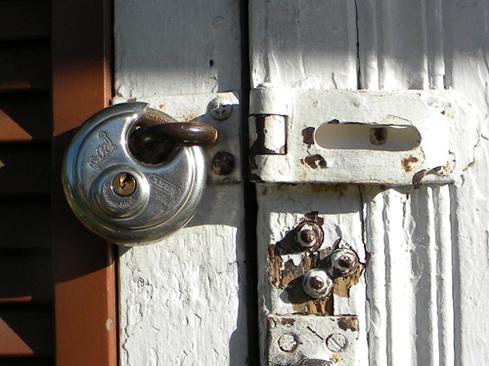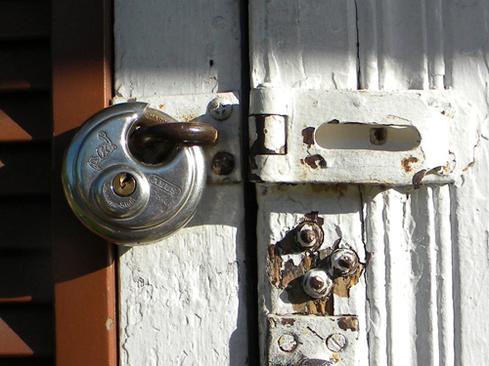Internet Of Things: Limitless Dumb Possibilities
Many of the "improvements" to ordinary household objects promised by SmartThings, a software company just acquired by Samsung, are already available elsewhere or seem like overkill.


Geek's Guide To NYC Travel: Interop Preview
Geek's Guide To NYC Travel: Interop Preview (Click image for larger view and slideshow.)
In the 2004 reboot of Battlestar Galactica, the starship for which the series is named escapes destruction because its computers were not networked.
This profoundly pessimistic view of network security qualifies as realism outside the realm of science fiction. Computers and networks are full of vulnerabilities. Beyond mission-critical, heavily-overseen projects with limited scope, the security industry doesn't even contemplate bulletproof code. Instead, it measures software defects per thousand or million source code lines. There will be bugs; the only question is how many.
The NASA space shuttle relied on 420,000 lines of spaceflight software code. The last three versions of this program contained one error each. In the last 11 iterations, there were only 17 flaws. That's what a staff of 260 people and billions in funding will buy you. Defect counts in commercial projects are much worse.
[Hate passwords? There's hope. Read 6 Biometric Factors That Are Working Today.]
So it should come as no surprise that 70% of the most widely used devices associated with the Internet of Things (IoT) contain serious vulnerabilities, according to HP Fortify. The security firm found an average of 25 vulnerabilities per device among the top 10 IoT devices. Had Galactica's Cylons attacked your smart home, they'd have let themselves in and turned your toaster against you. Count your blessings that skilled hackers have better targets to distract them.
The Internet of Things anticipates a time when everyday objects and appliances can connect to the Internet. It fails to consider whether our things really should be connected to the Internet. Just as everything looks like a nail when you're a hammer, every device looks like a network node when you're a technology company.
Figure 1:
This perhaps explains why Samsung, the company that last year introduced a "smart" refrigerator at CES, on Thursday acquired SmartThings, a company dedicated to the proposition that "everyday objects around us can do more to make our lives better." At the very least, there's the opportunity to ensure that everyday objects cost more.
Samsung joins a growing list of companies committed to a home full of networked objects. Google bought Nest and Dropcam. Apple has HomeKit and HealthKit coming soon. Microsoft is pushing Windows Embedded and Azure Intelligent Systems Service. Cisco wants to provide the networking
and security. And electronics product makers such as Belkin, Kwikset, Honeywell, Logitech, and Philips are all selling appliances they hope will be part of this network.
Blame consultancies like McKinsey Global Institute, which in a report last year projected the IoT could have an economic impact of between $2.7 trillion to $6.2 trillion annually by 2025.
But just because "smart" can be added to any noun doesn't make it so. IoT is two letters shy of "idiot." In other words, just because something can be programmed doesn't make it clever.
There are compelling reasons to network things, and most of them have to do with business. Car-sharing companies such as ZipCar show what can be done when you track cars over the network. Industrial control systems should provide sensor data and report failures. Sensors are already everywhere in manufacturing and logistics. Coincidentally, businesses budget for security.
When "smart" meets "home," however, start running.
SmartThings actually looks like one of the better ways to implement the Internet of Things at home because it doesn't require a subscription fee or try to convince you to store video in the cloud. Its products appear to be genuinely useful for home security. But there are a lot of home security services and devices.
Peace of mind
The benefits attributed to the company's products beyond security are questionable. There are its "peace of mind" notifications, for instance. Let's look at some of those.
— "Monitor movement, temperature, and activity throughout your home." Properly categorized as security concerns.
— "Get notifications when family members arrive and leave home." If you really want this, you could use smartphone-finding services or iOS 8's Family Sharing service.
— "Know if you remembered to close the garage, windows, and the front door." Barring memory-related medical issues, how often does this happen to you? Just pay attention.
— "Rest easy knowing valuable, dangerous, and off-limits items are secured." Again, security. Or perhaps security theater. Alerts about a security breach are notification, not prevention. Awareness of a break-in might not prevent an intruder from escaping with stolen goods.
Figure 2: 
— "Receive alerts when HVAC, electricity, or other important systems break down." How often is this likely to happen? HVAC systems often go a decade or more without breaking down. And if there's a power outage, are you really going to be running a cellular transmitter on backup power to send the alert your powerless WiFi router won't send?
— "Trigger A/C units, portable heaters, thermostats, and other electronics and appliances to automatically turn off when you leave." Many thermostats can be programmed independently on a schedule.
— "Get early warnings to prevent leaks from causing floods and structural damage." Why not buy insurance against falling satellite parts while you're at it? If a leak is likely, fix the problem. And if it's not, you probably don't need to monitor for an unlikely event.
"Limitless" possibilities
After security and peace of mind, SmartThings insists there are "limitless possibilities." The company manages to count eight.
— "Leave your keys at home–you won't need 'em anymore." True, until your smartphone battery or your electronic lock runs out of power, which is probably more likely than losing your keys.
— "Automatically start the coffee machine when you wake up." You don't need an app for that. Many coffee machines can be set to brew coffee at a specific time. Or you could do it yourself and smugly
consume your "handcrafted" coffee, without the pressure of appearing in the kitchen on the coffee machine's schedule.
— "Get light to follow you as you go from room to room." Everyone wants to be a star with a follow-spot. Try a light switch.
— "Set rules to automatically turn off your lights, electronics, and thermostat at different times or when not needed." This is a repeat of a "peace of mind" benefit.
— "Set your washing machine to tell you when the laundry's done." If the washing machine bell doesn't tell you and you can't be bothered to note the cycle time and return at the appointed hour, just set a timer on your smartphone. Siri is always glad to help.
— "Get an alert if your pet unexpectedly leaves home." Again, does this happen often? What you really want is a tag that can locate your pet (without a subscription fee). That would be a worthy product. Too bad existing pet-location tracking systems are too bulky for cats.
— "Change the color of your Philips hue lights when you get a new Twitter follower." Really? Twitter's incessant notifications aren't enough? If you're that determined to celebrate, just point a flashlight at your face until someone asks why, and then you can explain that you're an Internet celebrity.
— "Make it look like you're home when you're on the go." Another function properly classified under security. You can buy non-networked devices that will switch your lights on and off at random intervals.
So there you have it: Security appears to be the most compelling benefit that SmartThings has to offer. And that's if you ignore the reports coming out of security companies that the Internet of Things is full of vulnerabilities. So much for peace of mind.
Appliances: Not much to say?
The Internet matters in a consumer context because it allows people to connect with each other and to gain access to information across great distances. Among networked things, distance is only sometimes relevant. Being able to check a webcam from afar might be useful, at times.
But most home appliances don't benefit from remote operation and tend not to have much of value to communicate. How often are you really going to check the moisture sensor in your attic? Being able to read your home thermostat from work has a certain novelty appeal, but isn't ultimately that useful. If you're actually participating in your life, you can probably get by with operating your thermostat manually.
Internet of Things companies often mention smart appliances or smart devices. By "smart" they mean "programmed," and anyone who has written computer code will admit that programs are only as smart as their programmer and that programmers don't always implement programs in smart ways. If we used the term "programmed devices," we'd be more inclined to acknowledge that such things only do what they're told. "Programmed" is a better term because it implies limitations in a way that "smart" does not.
We have the technology to put everything online. What we need is the sense to keep most things offline, for the sake of our privacy, sanity, autonomy, and dignity. Delegate too much responsibility to your things and you might stop paying attention to what's going on around you.
It's not just data scientists and security ninjas in high demand. SDN, the Internet of Things, DevOps, data center convergence, and mobility are giving rise to entirely new job categories. In this InformationWeek survey, we want you to tell us about the hottest skills, how you're getting the expertise you need, staff training vs. making new hires, use of contractors, retention methods, and more. Take the the InformationWeek 2014 IT Skills Crunch Survey today and be eligible to win a prize. Survey ends Aug. 22.
About the Author(s)
You May Also Like







